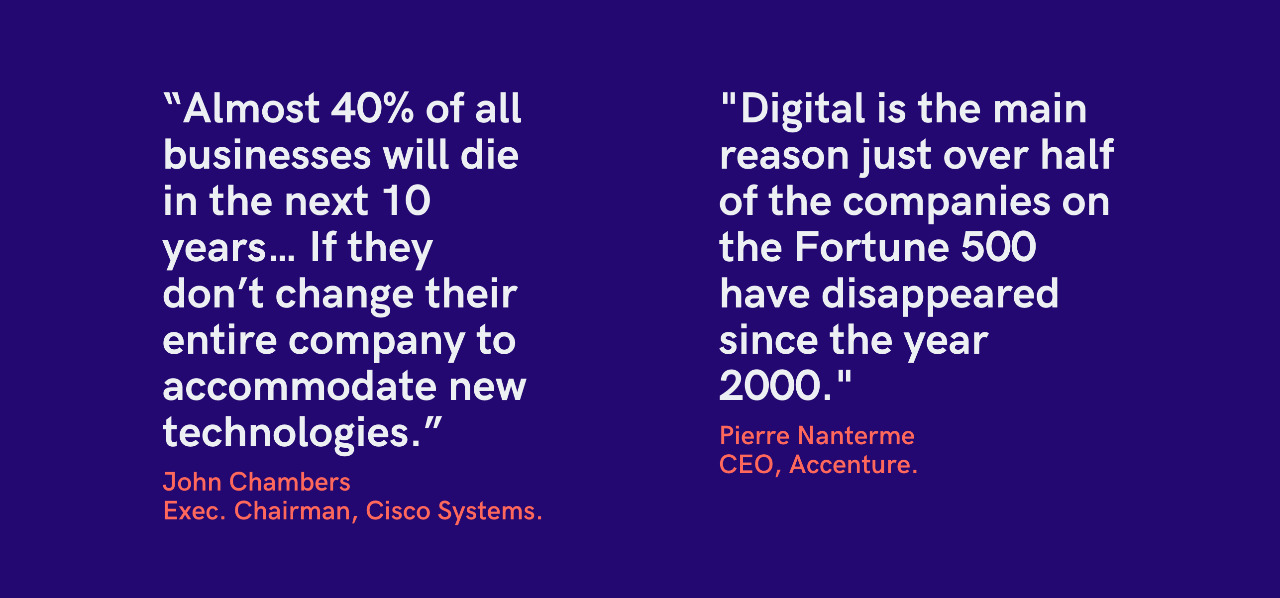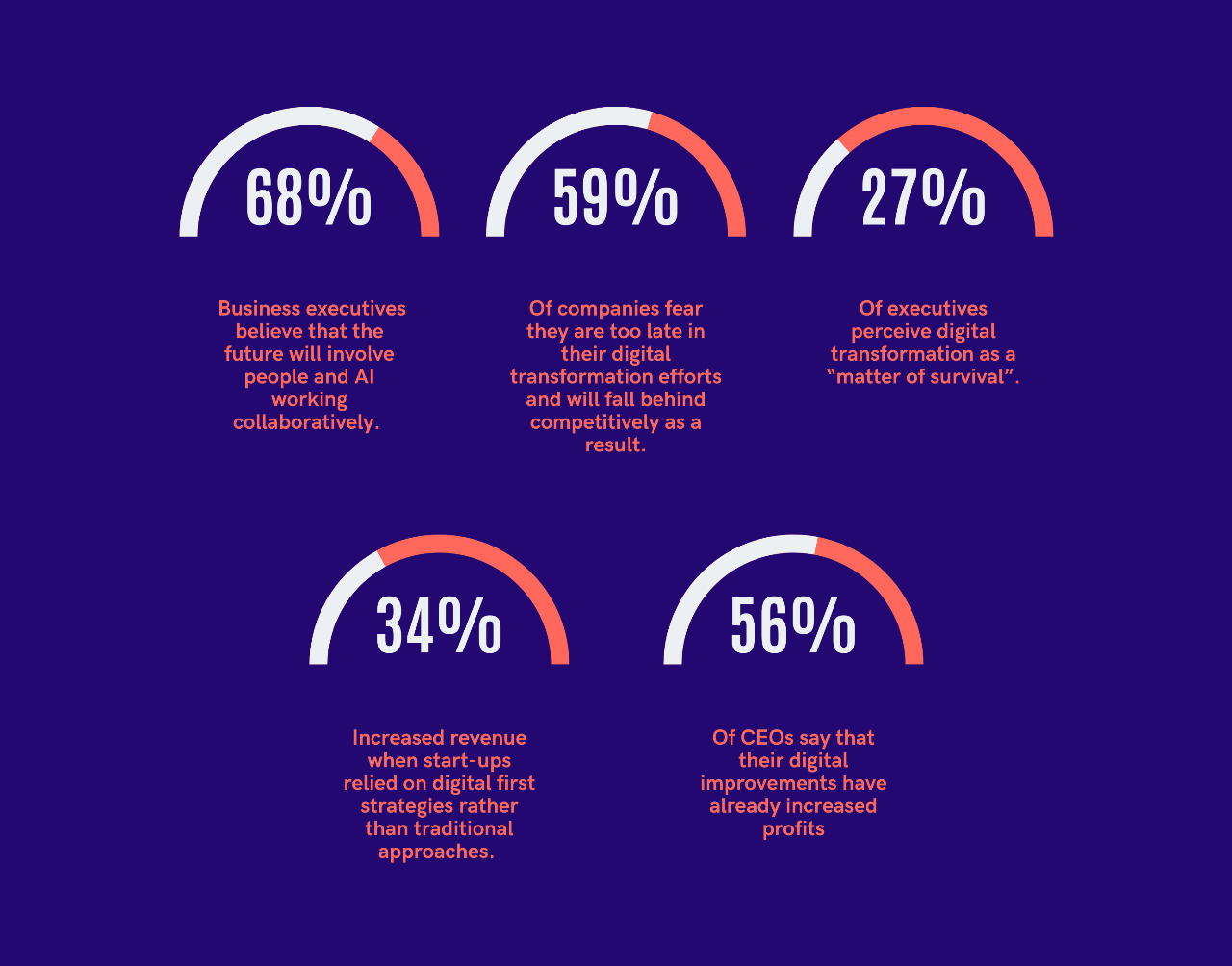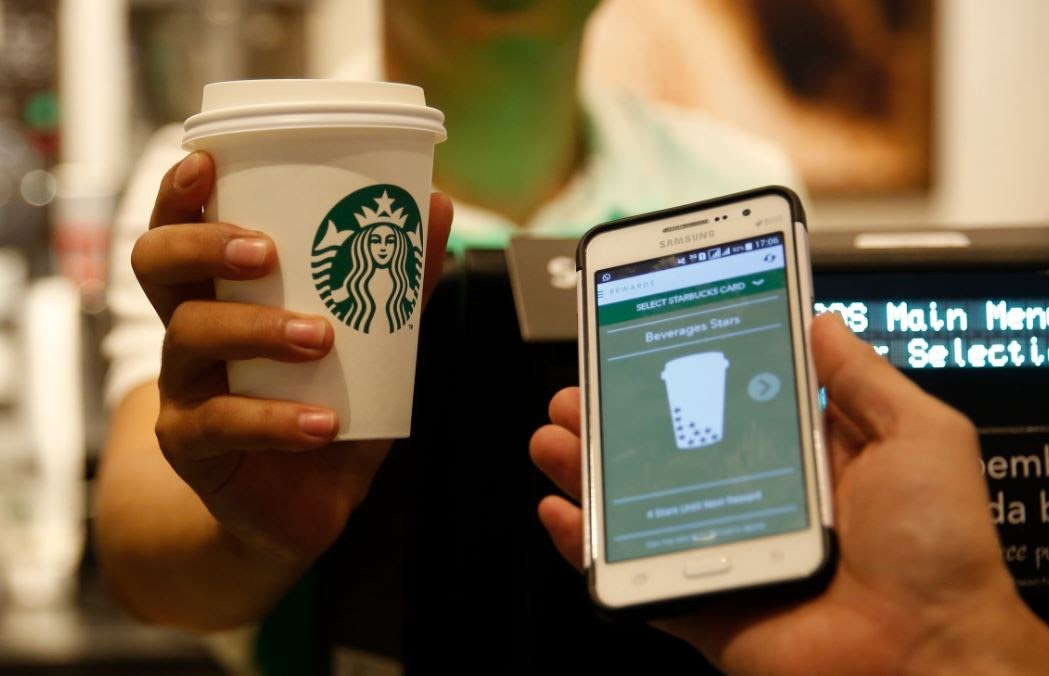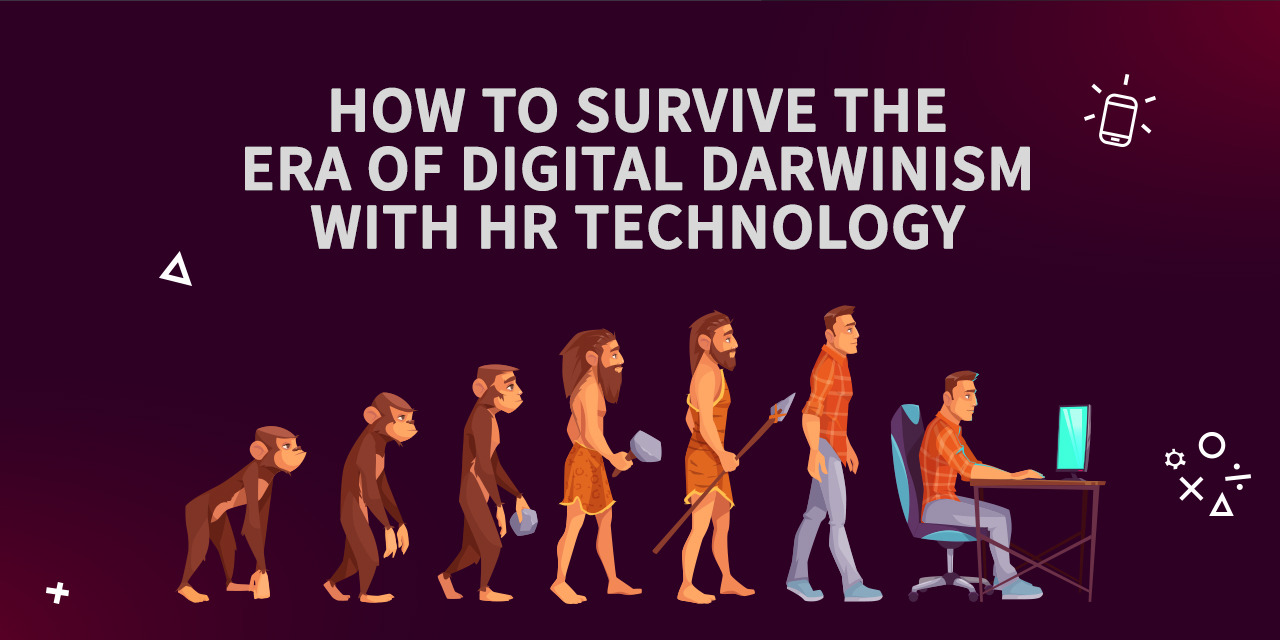It’s no secret that the world is changing at an ever-increasing pace. Those who have already embraced digital have been able to conduct (uninterrupted) business during the last months and are already winning the race.
What is Digital Darwinism?
Digital Darwinism is the application of Darwin’s Theory of Evolution to the digital economy. The term was first coined by Evan I. Schwartz in 1999 and popularized in the recent years by digital analyst Brian Solis. In 2011, Solis wrote in the Washington Post:
Digital Darwinism is the evolution of consumer behavior when society and technology evolve faster than some companies’ ability to adapt. The point of natural selection is that only some businesses will survive.

What can Organizations do to Survive Digital Transformation?
You know what great companies like Amazon, WhatsApp and Uber have in common? They identify gaps and leverage the insights to accelerate their progress in the age of disruption. Conversely, companies like Starbucks, IKEA and Netflix have also recognized the disruption and are working towards digitally transforming themselves.
Deloitte Digital distinguished four primary elements of Digital Transformation which apply mainly to the business context:
- Transformation of business models and products
- Optimization of organization management processes
- Creating a digital work environment
- Customer involvement in various communication channels

Examples of Digital Transformation – Companies That Did It Right
Here are some examples of companies that are digitally transforming themselves to survive the Digital Darwinism:
NIKE
Nike, the world’s largest athletic apparel company, best known for its footwear, apparel, and equipment, felt it was running behind. Instead of hesitating, the forward-looking company’s leadership team decided to digitally transform the overall brand, company’s mindset and supply chain to connect better with the customers. Nike also revamped its e-commerce strategy and ran powerful digital marketing campaigns to augment its sales.

STARBUCKS
Starbucks, an American multinational chain of coffeehouses and roastery reserves, worked out a digital strategy and now uses data analytics innovatively.
For instance, it uses data like average incomes, population density, and traffic patterns to identify target areas for a new store. Moreover, Starbucks also utilizes data to help adjust its menu and product offerings with consumer preferences.

NOVARTIS
Novartis, the global healthcare company based in Switzerland that provides solutions to address the evolving needs of patients worldwide, digitally transformed its recruitment process.
The pharmaceutical company used the C-Factor recruitment game to innovate its hiring method and attract top talent in a fun way alongside running a powerful social media campaign.
VOLKSWAGEN
Volkswagen, the German multinational automotive manufacturing corporation, is undergoing digital transformation and plans to invest nearly $4 billion by 2025 to boost expansion with digital ecosystem.
From 2020 onwards, more than 5 million new Volkswagen brand vehicles per year will be fully connected and will be part of the Internet of Things (IoT) in the cloud.

ADAPTING TO THE DIGITAL REVOLUTION
From business models and payment methods to new ways of hiring, the digital revolution has transformed it all, making it quite clear that there is no way to survive in the current era without embracing it.
Consumers have become more demanding than ever as well. Getting the best product at the most competitive price is no longer enough. They crave for a seamless experience and an unbeatable service. Likewise, when it comes to hiring, candidates also expect to have a positive experience.
HR tech makes it quite easy for hiring managers to track the number of candidates across multiple locations and automate the monotonous tasks, such as sending emails to applicants. Similarly, recruiters can collaborate online to gain insight about a certain candidate and then choose the best one more efficiently. Pre-employment assessments such as gamified assessments allow HR to strengthen their candidate engagement and stand apart from the rest of the hiring competition.
Luckily, with the use of HR tech, companies can easily adapt to the new situation and offer the jobseekers as well as employees an unrivalled experience.
